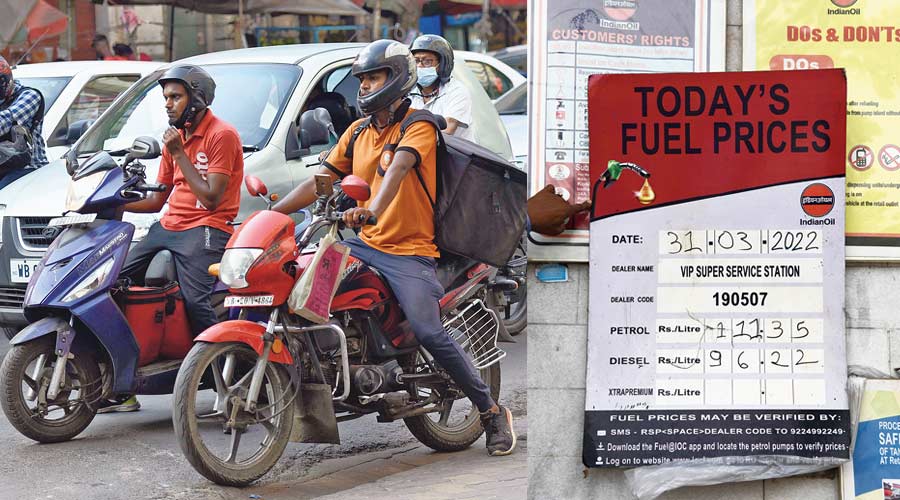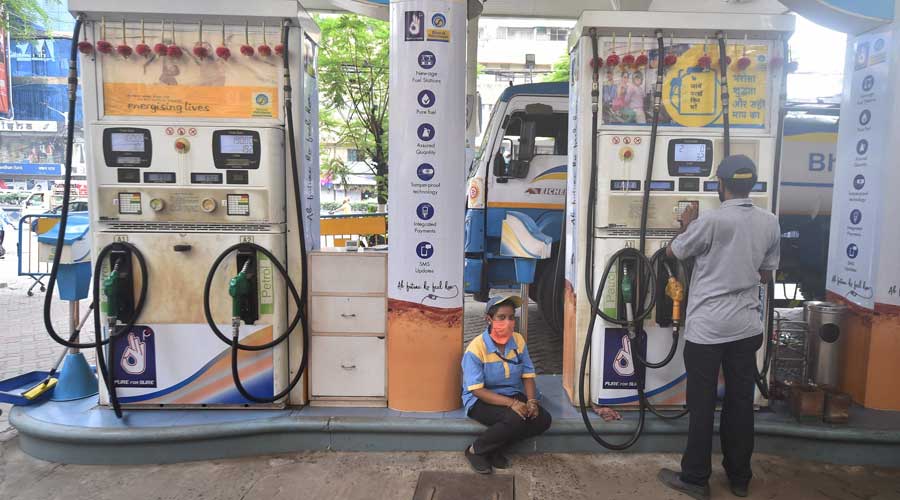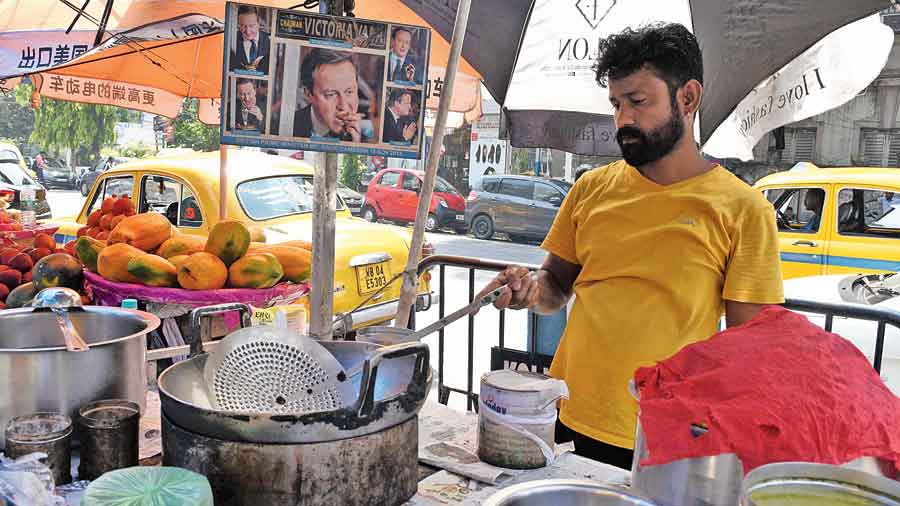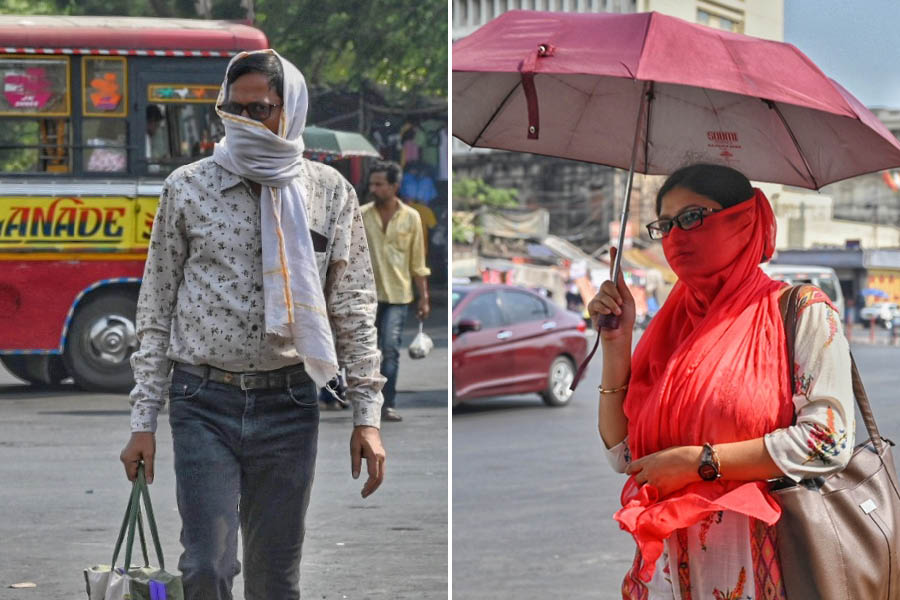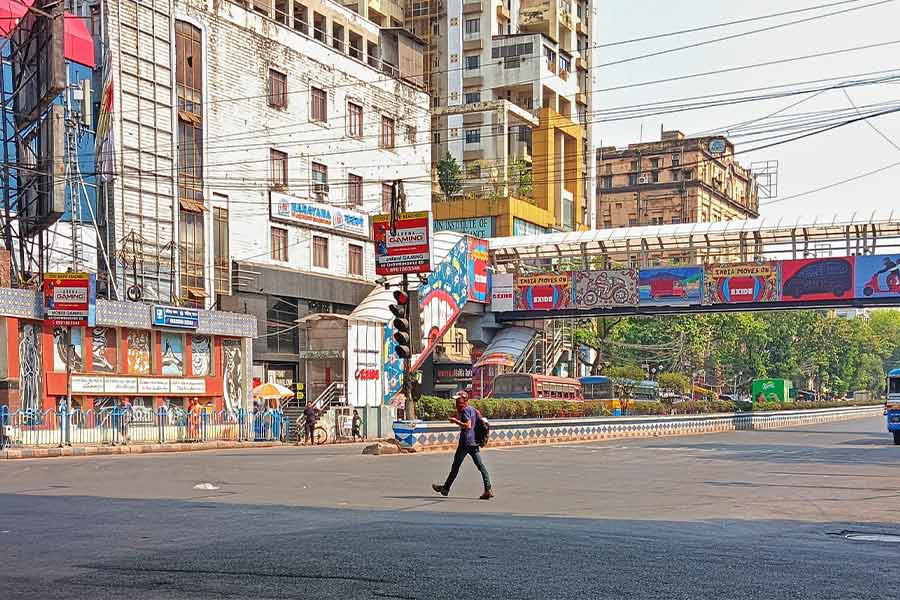The soaring prices of fuel and other essential commodities have pushed many to the brink and they have no option but to grin and bear.
The Telegraph spoke to two such persons, a delivery partner with a food aggregator and an Integrated Child Development Scheme (ICDS) worker.
Both requested anonymity
A food delivery partner
Rides over 100km every day, for which he needs around 2.5 litres of petrol
- Daily petrol expense in 2019: Rs 160 (approx.)
- Daily petrol expense in 2022: Rs 250 (approx.)
The 36-year-old works from noon till after midnight every day for an online food aggregator, scouring the lanes of New Alipore, Behala, Thakurpukur in southwest Kolkata and Tollygunge on the southern fringes.
The price rise is hurting him more because of the dip in his incentive and income structure.
He gets a base amount of Rs 20 for every order up to 4km. There is an additional Rs 10 for every kilometre.
Upon completion of a 10-hour shift, and delivery of 13 orders, his income is Rs 720.
Additionally, he gets around Rs 250 as fuel expenses every week.
What remains after buying fuel and other expenses is less than Rs 500 every day.
“By the third week of every month, I am broke. I think twice even before having a cup of tea on the road,” said the man, who lives in Thakurpukur.
The income structure was “much, much better” when he joined the food aggregator three years ago. “I am desperately looking for another job but cannot find anything suitable,” said the man, who could not complete his graduation.
A couple of days ago, he requested a doctor to prescribe some generic and cheaper medicines for his mother, who suffers from cardiac and thyroid conditions and hypertension.
He said he was compelled to make the “embarrassing” request because of the steep rise in the price of cooking gas.
He has to spend around Rs 1,500 every month on her medicines. The family needs three LPG cylinders in two months. One cylinder costs around Rs 1,000 now, after another jump of Rs 50.
“With income stagnant and expenses shooting up, I have to find new ways of cutting costs all the time,” he said.
Integrated Child Development Services (ICDS) scheme worker
Lives in a rented accommodation in Rampur, off Diamond Harbour Road in Taratala
- Price of one domestic LPG cylinder in 2019: Rs 550 (approx.)
- Price of one domestic LPG cylinder in 2022: Rs 1000 (approx.)
The woman, in her 50s, lives with daughter, a third-year student. Her husband passed away a few years ago.
She gets an honorarium of Rs 8,000. Her job is to supervise the cooking and delivery of food to pregnant and lactating mothers and children at an ICDS centre in Maheshtala.
The rising fuel prices are proving too strong a foe for her.
“I take a Rs 500 note to the market, hoping to buy something and come home with some balance. For the past several months, that has been a challenge. Even eating a frugal meal of rice, dal and vegetables has become a costly affair,” she said.
LPG cylinder is something she cannot do without. “So, I have to cut back on something else to meet the extra expense,” she said.
The home needs a fresh coat of paint. But that is a distant dream now, said the woman.
She has some money deposited in a small savings scheme in a post office. She used to save the monthly interest from the deposit, too, but not any more.
“I have to use up the minimal interest that I get to meet the growing expenses,” she said.
She has resorted to multiple cost-cutting methods — minimum cable package and minimal use of electricity.
Her daughter studies English honours at a college near Ballygunge in south Kolkata. In the absence of a direct bus route, she has to travel in multiple autorickshaws to commute between home and college.
The expenses are over Rs 100 per day.
“She skips college on the days of fewer classes,” her mother told this newspaper.


